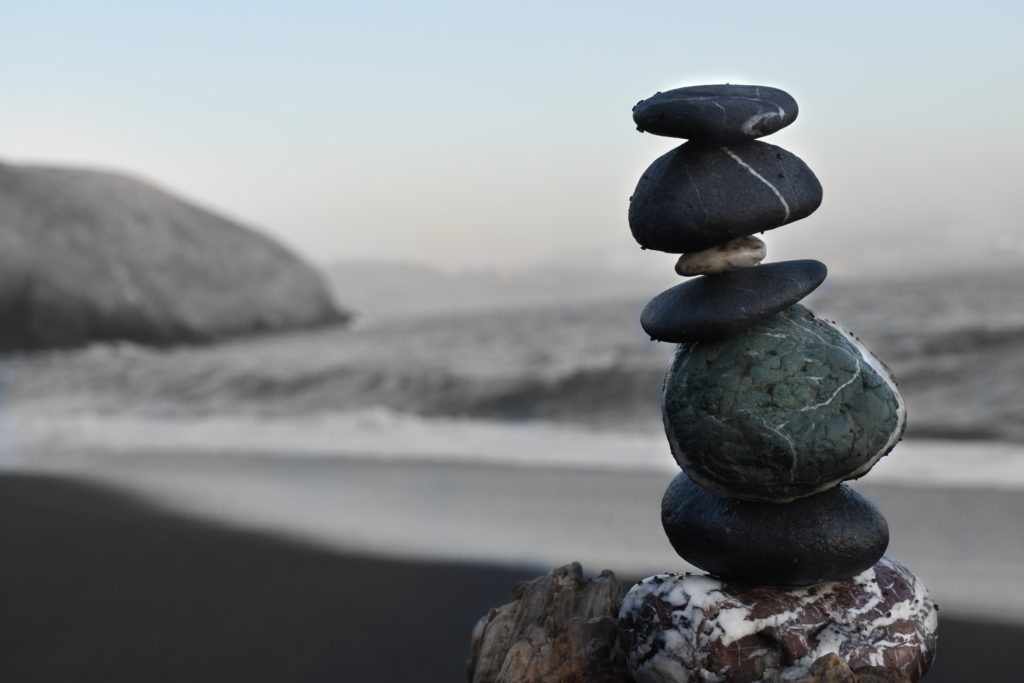
Welcome back to the SFU LYFE blog! It’s about halfway through yet another online semester in these strange times and whoever you are, we wish you the best. Through our blogs we are here to give you some advice that just might allow you to make it out of university alive and in one piece because let’s face it, we are all in this together.
Whether you’ve finally gotten the hang of things, you’re still struggling, or maybe even this is your first semester in university and making sense of all this campus stuff is still completely new to you, chances are that you currently have a lot on your plate.
Lectures, homework, all the quizzes and exams you need to study for, family obligations, work, clubs—you just can’t help wishing that getting overwhelmed all the time wasn’t so hard. Whatever it may be, it seems we are forced to not only bite more than we can chew, but to also digest it completely.
These are unprecedented times, no doubt about that. “Uncertain” is another good way to put it. However, one thing is for sure: None of this may be our fault, but it is our problem. And whether we deserve it or not, whether it’s fair or not, it is our responsibility to get through this.
I’ll admit, I’m still trying to get a proper handle on things so they are a bit more under control. And good news, I have a solution.
Having been using this technique for about a year now, I know it works.
It has single handedly helped me remain less exhausted and prevent a total burnout. And if it wasn’t for this tip, I very well may have lost my sanity, so I am going to tell you all about it so that you may keep yours.
A simple but effective approach to finding balance
We know that fatigue is our enemy, and keeping our mind fresh is imperative. We also know that getting overwhelmed with one million different tasks that needs to get done is a surefire way to go from fresh to fatigued.
But what you may not have known is that, while yes, it is the sheer number of things you have to be doing that overwhelms you, it is also the order in which you do them.
You see, we often feel tired not for having too many things to do, but for doing the same type of things for prolonged periods of time…
I want you to let that sink in for a moment.
Yes, granted, having back to back midterms while at the same time juggling homework and jobs and those weekly discussions on canvas is a handful, but at the same time, wouldn’t it help if your mind was fresh in doing those tasks?
If we are going to be faced with a million different tasks, we might as well be smart about it, no? It doesn’t make sense to do the same type of tasks nonstop let alone doing the same exact task without anything else for a change doesn’t it?
You see, we often feel tired not for having too many things to do, but for doing the same type of things for prolonged periods of time…
Think of it like your circadian rhythm, which is fancy talk for your sleep cycle. In order for you to perform optimally throughout the day, your body needs a proper cycle of rest and wakefulness. So after spending time being awake, we need to sleep, and after spending time asleep, we need to wake up, so there is a balance.
When we do one thing, we have to do the other. Our body is like that with many things, including the things that we do while we are awake. This is why we must balance between tasks that are active and sedative, creative and consumptive, cerebral and manual, etc. When we focus on too much of one thing, our mind gets too zoned in and consequently, it starts to zone out.
Take the last case for example. Let’s say we spend some time doing something cerebral, such as studying for an exam. By studying for an exam, not only are we forced to concentrate and focus, we really have to think and make use of our cognitive capacities.
Just as we would sleep after a long hard day, we should make sure that we are not studying forever, and that we allow our mind to focus on something else for a change, namely that which doesn’t force us to focus so intensely.
Go take a walk (safely and socially distanced of course) or do whatever it takes to allow your mind to have a little break. And when you come back home, you’ll be ready to focus again.
Next Steps
So, after you read this little blog post, I want you to list out all the things that you have to do today and ask yourself:
“What kind of tasks are they? Do I have to communicate with other people?”
Then make sure to do something that is done individually afterward.
“Do I have to exert physical strength?”
Then make sure to do something that is done by thinking afterward.
You get the idea, like I said if you are going to be faced with a million different tasks, you might as well be smart about it.
Bottom Line
If this sounds really simple and easy to do, that’s because it is.
In fact, you’ve been doing it for as long as you remember. The idea behind having a contrast in the tasks that you engage in, is the exact same idea behind taking a vacation after a year of school. You do one thing for some time, and in order to refresh your brain, you do the other thing.
School makes us miss vacation, and to those who are willing to admit, vacation makes us miss school (of course that attitude, much like a child wishing he would grow up, quickly vanishes once in school). But the point remains! It doesn’t take a genius to figure out that we have vacations because it’s hard for us to be in one environment engaged in one category of tasks for an extended amount of time.
So, if we know and do this on the large scale, then why not replicate it on the small scale?
Worked out? Great, spend the next hour relaxing and taking a nap. Did something creative? Great, spend the next hour consuming some food and maybe some reading material. Studied for an exam? Great, spend the next hour doing something that requires no deep thinking like cleaning your bedroom.
It goes without saying that it’s up to you to figure out for yourself how long is too long before you finally decide to switch up your activities. And as long as you remain diligent in creating this balance for yourself, your mind will thank you later and you’ll do more than great. You got this!


About the Author
Oh hey! It’s Kohei! Hey listen, I don’t write that much… only 3/week for my blog and 1 video a week for my YouTube, and of course, there is this that you are reading. I plan to be a NEET by age 50, (but most people just call it retirement). You can slide into his DMs @philosophy.express
